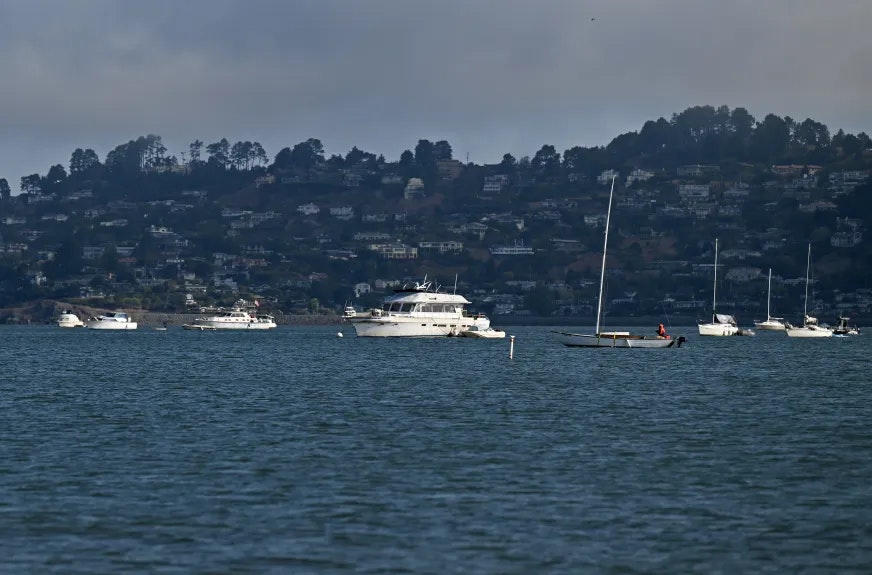Richardson Bay Authority Defeats Lawsuit Over Boat Removals

By KRISSY WAITE | kwaite@marinij.com
PUBLISHED: December 31, 2023 at 11:52 a.m. | UPDATED: January 1, 2024 at 9:10 a.m.
A federal judge has dismissed a lawsuit arguing that the Richardson’s Bay Regional Authority does not have legal standing to police the water.
The judge found no merit in an argument by plaintiff Robert Roark, an anchor-out who lives on the bay, that he has a constitutional right to anchor there.
“To the extent Roark is alleging a stand-alone constitutional entitlement to anchor where he chooses, the United States’ constitution does not confer a blanket right to anchor in Richardson’s Bay,” wrote Judge William Orrick of the U.S. District Court for the Northern District of California.
Despite a law that prohibits boaters from anchoring in the bay for longer than 72 hours, many have lived on their vessels there for decades. The number of anchor-outs swelled to 240 in 2016. Today there are about 40.
The agency enforces a 72-hour anchoring limit for new vessels, and plans to remove all anchor-outs from the bay by October 2024. A housing and vessel buyback program, as well as a permitting process, have been implemented in order to get boats off the bay.
A settlement with the San Francisco Bay Conservation and Development Commission requires that all illegally anchored vessels be removed by Oct. 15, 2026.
The area is home to extensive eelgrass beds, an essential fish habitat. The beds reduce coastal erosion and ocean acidification, sequester carbon and provide habitat for commercially, recreationally and ecologically important marine life, according to experts. Years of vessels anchoring, often illegally, have resulted in extreme damage, according to the state.
Brad Gross, executive director of the Richardson Bay agency, said the ruling was expected, but noted that it was the first time these points have been reviewed by a judge. He said the arguments Roark asserted were the same talking points the agency has heard for years.
“We’ve always known and it’s been our opinion exactly what the judge said,” Gross said. “And we’ve been operating from that position since the beginning. But it’s never been given to a court. It’s never been adjudicated or given to a judge. Finally, we have a judge who has given an opinion that sets the position that we’ve always had.”
Enforcement will continue to ramp up, he said.
“We want them to take their possessions and go where it’s legal to be,” Gross said.
Roark also alleged that federal laws prevented the local authority from governing the area.
“I agree that no regulation or federal authority identified by Roark preempts the authority of RBRA to control anchorages in Richardson’s Bay,” Orrick wrote in the ruling, which was issued Dec. 1. “Instead, the federal regulations he identified establish Richardson’s Bay as a ‘special anchorage area’ and direct mariners to comply with the RBRA’s Permit Scheme.”
Roark argued that the agency’s permit program is unconstitutional because it is impossible to comply with; it violates the Fourth Amendment by allowing warrantless searches; and it conflicts with the Fifth Amendment because permits can be revoked without due process.
In relation to the warrantless searches, the judge referenced cases in which authorities are allowed to tow or impound vehicles that are a hazard to the public’s health or safety, or illegally parked.
The judge found all of Roark’s claims to lack understanding of the law and dismissed them.
“The defects identified above that lead to dismissal as a matter of law cannot be cured by alleging further facts,” Orrick wrote. “Based on inapplicable legal theories or on facts he has admitted, each claim fails.”
The decision can be appealed. Roark, who represented himself in the case, could not be reached for comment.
